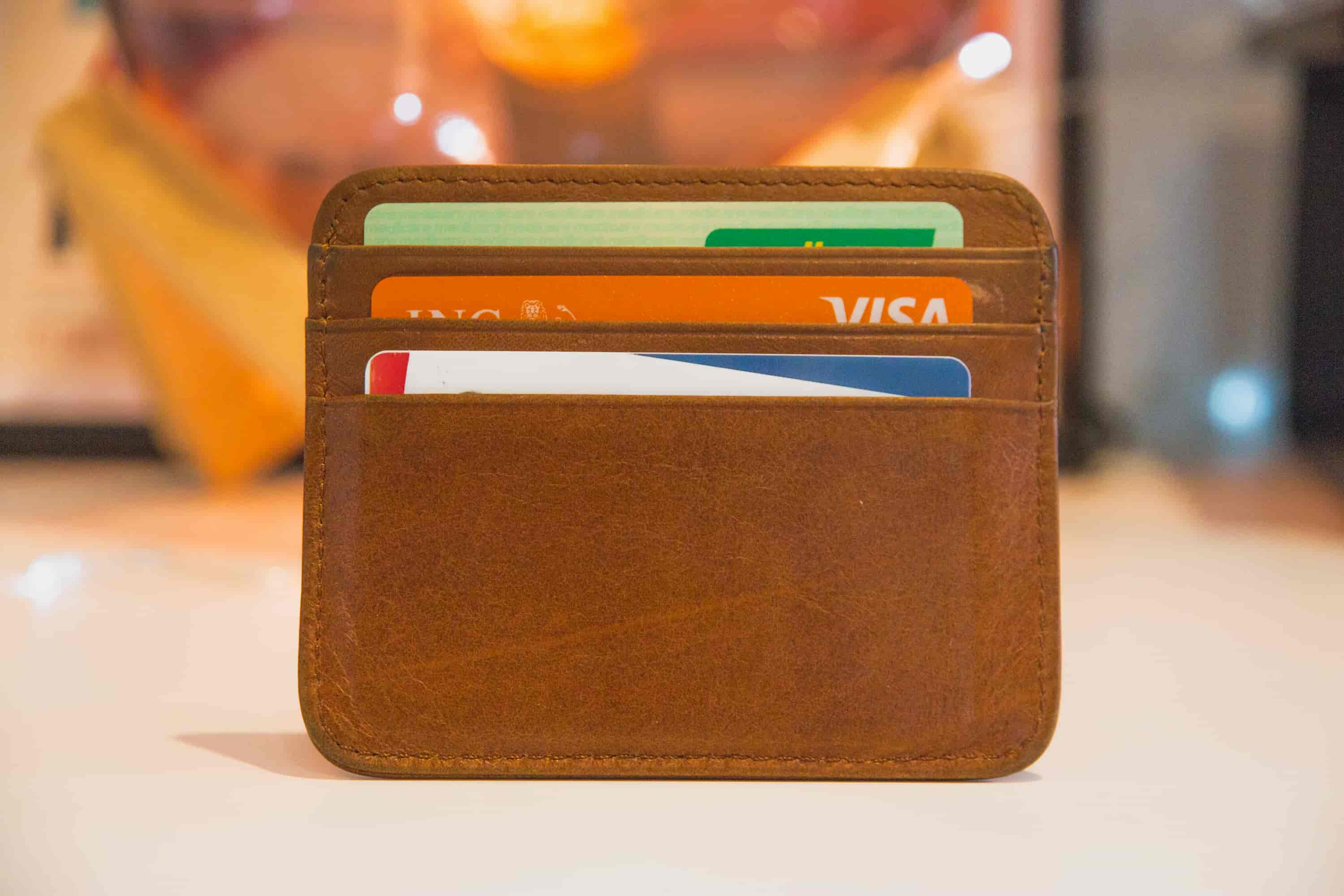

Finance
How To Build Car Credit
Modified: March 10, 2024
Learn how to build your car credit with our finance tips and strategies. Improve your credit score and get approved for the car loan you need.
(Many of the links in this article redirect to a specific reviewed product. Your purchase of these products through affiliate links helps to generate commission for LiveWell, at no extra cost. Learn more)
Table of Contents
- Introduction
- Understanding Car Credit
- Steps to Build Car Credit
- Check your credit report
- Pay bills on time
- Reduce credit card debt
- Establish a steady income
- Apply for a secured credit card
- Take out a small loan and make timely payments
- Co-sign with someone who has good credit
- Monitor your credit and make necessary improvements
- Conclusion
Introduction
Having a good credit score is essential when it comes to financing large purchases, such as buying a car. However, if you have little to no credit history, it can be challenging to secure a car loan or get favorable interest rates. This is where building car credit becomes crucial.
Car credit refers to your credit history and score specifically in relation to auto loans. When you have good car credit, it means you have demonstrated responsible borrowing and repayment behavior in the context of auto financing. This can open up doors to better loan options, lower interest rates, and improved chances of loan approval.
Building car credit is a gradual process that requires patience, discipline, and consistency. It involves taking certain steps to establish a positive credit history that focuses on your ability to manage debt and make timely payments. By following these steps, you can improve your creditworthiness and increase your chances of securing a car loan on favorable terms.
In this article, we will explore the steps you can take to build car credit from scratch and improve your chances of getting approved for auto financing. Whether you are a first-time car buyer or someone looking to rebuild their credit, these strategies can help you establish a solid credit foundation for your future car purchases.
Understanding Car Credit
Before diving into the steps to build car credit, it’s important to understand what car credit is and why it matters. Car credit refers to your credit history and score specifically in relation to auto loans. Lenders use this information to assess your creditworthiness and determine the terms and conditions of your car loan.
The three major credit bureaus — Experian, Equifax, and TransUnion — compile your credit history, which includes information about your borrowing and repayment behavior, such as credit cards, loans, and other financial obligations. When you apply for a car loan, lenders will check your credit report to see how creditworthy you are.
When it comes to car credit, lenders consider several factors, including:
- Payment history: Your track record of making on-time payments for loans and credit cards. Late payments or defaults can negatively impact your car credit.
- Credit utilization: The percentage of your available credit that you’re currently using. High credit card balances can indicate a higher risk for lenders.
- Credit history length: The length of your credit history. A longer credit history can help build a stronger car credit profile.
- Age of accounts: The age of your credit accounts. Longer-standing accounts can positively impact your car credit.
- Credit mix: The different types of credit accounts you have, such as credit cards, loans, and mortgages.
- New credit inquiries: The number of recent credit inquiries or applications for credit. Too many inquiries within a short period of time can signal financial instability.
Understanding these factors can help you make informed decisions and take the necessary actions to improve your car credit. By strategically managing these aspects of your finances, you can build a strong credit profile and increase your chances of securing a car loan with favorable terms.
Steps to Build Car Credit
Building car credit requires a proactive approach and consistent effort. By following these steps, you can improve your creditworthiness and increase your chances of securing a car loan:
- Check your credit report: Start by obtaining a copy of your credit report from each of the major credit bureaus. Review it carefully to identify any errors or discrepancies that may be negatively impacting your credit. Dispute any inaccuracies and have them corrected.
- Pay bills on time: Your payment history is one of the most significant factors that affect your credit. Make sure to pay all your bills, including credit card payments, loans, and utilities, on time every month. Consider setting up automatic payments or reminders to avoid missing due dates.
- Reduce credit card debt: High credit card balances can negatively impact your credit utilization ratio. Aim to keep your credit card balances below 30% of their limits. If possible, pay off your balances in full each month to avoid accruing interest.
- Establish a steady income: Lenders want to see that you have a reliable source of income to make timely loan payments. Having a steady job or a stable income stream can bolster your creditworthiness and make you a more attractive borrower.
- Apply for a secured credit card: If you have limited credit history or a low credit score, a secured credit card can be a useful tool for building car credit. With a secured credit card, you’ll need to provide a cash deposit as collateral. Make small purchases and pay them off in full each month to demonstrate responsible credit usage.
- Take out a small loan and make timely payments: Applying for a small installment loan, such as a personal loan, can help diversify your credit mix and demonstrate your ability to manage different types of debt. Make sure to make all loan payments on time to build a positive payment history.
- Co-sign with someone who has good credit: If you’re struggling to obtain a car loan on your own, you can consider asking a family member or close friend with good credit to co-sign the loan. Their good credit history can increase your chances of loan approval and secure more favorable terms.
- Monitor your credit and make necessary improvements: Regularly check your credit score and credit reports to monitor your progress. Look for ways to further improve your credit, such as paying down debts, disputing inaccuracies, or applying for new credit responsibly.
Building car credit takes time and patience. By following these steps consistently and responsibly managing your financial obligations, you can establish a strong credit profile and improve your chances of securing a car loan with favorable terms.
Check your credit report
Before you start building your car credit, it’s crucial to know where you stand. Start by obtaining a copy of your credit report from each of the major credit bureaus – Experian, Equifax, and TransUnion. You can request a free copy of your credit report annually from each bureau through AnnualCreditReport.com.
Review your credit report carefully to identify any errors, discrepancies, or negative items that may be affecting your credit score. Common errors can include inaccurate personal information, accounts you don’t recognize, or outdated negative information that should have been removed.
If you find any errors or inaccuracies, you can take steps to dispute them. Contact the credit bureau in writing and provide supporting documentation to back up your claim. The bureau is required to investigate your dispute within 30 days and correct any errors if they are found to be valid.
By regularly checking your credit report, you can ensure that the information reflected is accurate and up-to-date. This is essential because lenders use your credit report to evaluate your creditworthiness and make lending decisions.
Additionally, monitoring your credit report allows you to detect any signs of identity theft or fraudulent activity. If you notice unfamiliar accounts or suspicious activity, you should report it to the credit bureau immediately to protect yourself and prevent further damage to your credit.
Checking your credit report is a vital first step in building your car credit. It gives you a clear understanding of your current credit standing and enables you to address any issues or inaccuracies that may be holding you back from achieving a higher credit score.
Pay bills on time
One of the most significant factors that affect your credit score is your payment history. Lenders want to see that you are responsible and capable of making timely payments on your financial obligations.
To build car credit, it is essential to pay all of your bills on time every month. This includes credit card payments, loan payments, utilities, and any other recurring expenses.
Late payments can have a negative impact on your credit score and can stay on your credit report for up to seven years. Consistently late payments can lower your credit score significantly and make it difficult to secure favorable loan terms.
To ensure that you pay your bills on time, consider setting up automatic payments or reminders. You can schedule automatic payments through your bank’s online bill pay service or set reminders on your phone or computer. This way, you won’t mistakenly forget to make a payment and risk damaging your credit.
If you are struggling to keep up with payments due to financial constraints, it’s important to communicate with your creditors. In some cases, they may be willing to work with you by adjusting the payment due date or offering a temporary forbearance plan.
Remember, consistent on-time payments over an extended period demonstrate your financial responsibility and can help improve your credit score. By making it a priority to pay your bills on time, you will gradually establish a positive payment history and build your car credit.
Reduce credit card debt
High credit card debt can have a significant impact on your credit score and overall creditworthiness. It’s important to actively work towards reducing your credit card debt to improve your car credit.
When it comes to credit utilization, lenders look at the ratio of your credit card balances to your credit limits. A high credit utilization ratio, meaning you are using a high percentage of your available credit, can negatively affect your credit score.
To reduce your credit card debt and improve your credit utilization ratio, consider the following strategies:
- Create a budget: Start by assessing your monthly income and expenses. Identify areas where you can cut back on spending and allocate more money towards paying off your credit card debt.
- Pay more than the minimum payment: Aim to pay more than the minimum amount due on your credit card each month. By paying more, you can chip away at the principal balance faster and reduce the amount of interest you accrue.
- Focus on one card at a time: If you have multiple credit cards with balances, consider focusing on paying off one card at a time. Put extra funds towards the card with the highest interest rate or the smallest balance first, while making minimum payments on the other cards.
- Negotiate lower interest rates: Contact your credit card issuers and ask if they can lower your interest rates. This can help you save on interest charges and make it easier to pay off your debt faster.
- Consider a balance transfer: If you have good credit, you may be able to transfer your credit card balances to a card with a lower interest rate or a promotional 0% APR period. This can provide temporary relief from interest charges while you work on paying off the debt.
- Avoid adding more debt: While paying down your credit card debt, it’s crucial to refrain from adding new charges. Focus on using cash or using your debit card for purchases instead.
Reducing your credit card debt not only improves your credit utilization ratio but also demonstrates responsible financial management. As you pay down your balances, your credit score will gradually improve, and your car credit will strengthen.
Establish a steady income
Having a steady source of income is not only crucial for your day-to-day expenses but also plays a significant role in building your car credit. Lenders want to see that you have the means to make regular loan payments without experiencing financial hardship.
When you have a steady income, it demonstrates your financial stability and increases your creditworthiness in the eyes of lenders. Whether you are employed full-time, part-time, or self-employed, having a consistent stream of income is essential.
If you are currently unemployed or have irregular income, consider taking steps to establish a steady income before applying for a car loan. Some strategies you can implement include:
- Seeking stable employment: Look for job opportunities that offer consistent schedules and reliable income. Full-time employment or long-term contracts can help demonstrate financial stability to lenders.
- Creating multiple sources of income: If you have a side hustle or a skill that you can monetize, consider exploring opportunities to generate additional income. This can help supplement your primary source of income and improve your financial standing.
- Building a solid freelance or self-employment client base: If you work as a freelancer or are self-employed, focus on establishing a consistent client base to ensure a steady flow of income. Building relationships with reliable clients can help stabilize your income and strengthen your creditworthiness.
- Developing a savings buffer: Having savings that can cover several months’ worth of expenses can provide a safety net and demonstrate your ability to handle unforeseen financial challenges. Lenders also view borrowers with a financial cushion more favorably.
By establishing a steady income, you not only improve your chances of loan approval but also enhance your overall financial stability. This, in turn, contributes to building a solid credit foundation for your car credit journey.
Apply for a secured credit card
If you have limited credit history or a low credit score, a secured credit card can be a valuable tool for building car credit. A secured credit card requires a cash deposit as collateral, which serves as your credit limit. It is designed to help individuals establish or rebuild their credit.
Here’s how a secured credit card works:
- Security deposit: When you apply for a secured credit card, you’ll need to provide a cash deposit to the card issuer. This deposit determines your credit limit. The amount of the deposit typically ranges from $200 to a few thousand dollars.
- Credit reporting: Secured credit cards are reported to the credit bureaus, just like traditional credit cards. This means that your responsible credit usage and timely payments will be reflected in your credit history, helping you build a positive credit profile.
- Responsible credit usage: To build car credit effectively with a secured credit card, it’s important to use it responsibly. Make small purchases with the card and pay off the balance in full each month. This demonstrates responsible credit management and can help improve your creditworthiness over time.
Using a secured credit card responsibly can help establish a positive payment history and demonstrate your ability to manage credit. However, it’s important to choose a reputable secured credit card issuer and ensure that they report your credit activity to the major credit bureaus.
With responsible use and timely payments, you may be able to transition to an unsecured credit card in the future, which can further strengthen your credit score. As your car credit improves, you’ll be in a better position to obtain favorable auto loan terms.
It’s essential to note that while a secured credit card can be a useful tool for building car credit, it’s important to use it responsibly and not accumulate excessive debt. Only charge what you can afford to pay off each month and avoid maxing out your credit limit, as high credit utilization can still have a negative impact on your credit score.
Take out a small loan and make timely payments
Another effective strategy for building car credit is to take out a small loan and make timely payments. This can help diversify your credit mix and demonstrate your ability to manage different types of debt responsibly.
When selecting a small loan, it’s important to consider the following:
- Loan amount: Choose a loan amount that you can comfortably repay within a reasonable timeframe. It should be an amount that you can manage without stretching your budget.
- Interest rate: Compare interest rates from different lenders and choose a loan with a competitive rate. A lower interest rate means you’ll pay less in interest over the life of the loan.
- Loan term: Select a loan term that aligns with your financial goals. Keep in mind that shorter loan terms generally result in higher monthly payments but lower total interest paid in the long run.
Once you have obtained a small loan, it’s essential to make timely payments each month. Paying your loan installments on time demonstrates your reliability and financial responsibility to lenders.
To ensure you make timely payments, consider setting up automatic transfers or reminders. This will help you stay organized and avoid missing any payments. Missing loan payments can have a negative impact on your credit score and hinder your car credit-building efforts.
Building a positive payment history through consistent, on-time loan payments shows lenders that you are a reliable borrower. It establishes trust and increases your chances of getting approved for a car loan in the future with more favorable terms.
Remember that it’s important to manage your budget effectively while repaying a loan. Factor in the monthly loan payment when making your budget and ensure that you have sufficient funds to cover it without sacrificing other financial obligations.
By taking out a small loan and making timely payments, you demonstrate your creditworthiness and responsible debt management, which are crucial for building your car credit.
Co-sign with someone who has good credit
If you’re struggling to obtain a car loan on your own due to limited credit history or a low credit score, a viable option is to have someone with good credit co-sign the loan with you.
When a person co-signs a loan, they essentially become equally responsible for the repayment of the loan. Their strong credit history and score can help offset any concerns lenders may have about your creditworthiness.
Here are a few key points to consider when opting for a co-signer:
- Choose a reliable and trustworthy co-signer: Select someone who has a good credit history and a solid financial standing. They should understand the responsibilities of co-signing and be willing to support you throughout the repayment process.
- Understand the risks: Co-signing is a serious commitment. The co-signer is equally responsible for the loan, and any late payments or defaults can negatively impact their credit as well. Ensure your co-signer understands the implications and is comfortable with this level of responsibility.
- Make timely payments: It’s crucial to make all loan payments on time. Timely payments will not only protect your credit but also ensure that your co-signer’s credit remains unaffected. Communicate openly with your co-signer about the payment schedule and ensure that both parties are aware of any changes or challenges that may arise.
- Build credit while co-signed: Utilize the opportunity of having a co-signer to build your credit. Make sure the loan is reported to the credit bureaus, and make all payments on time, as this will positively impact your credit score. Building your credit will allow you to become financially independent in the future and potentially qualify for loans on your own.
Co-signing with someone who has good credit can provide you with the opportunity to secure a car loan that may have otherwise been difficult to obtain. However, it’s important to approach this arrangement with transparency, trust, and mutual understanding, and to keep open lines of communication throughout the loan term.
Remember that responsibly managing the loan and making timely payments will not only benefit you but also maintain the good credit standing of your co-signer.
If you choose to go this route, consider it as a stepping stone towards building your own credit and working towards financial independence in the future.
Monitor your credit and make necessary improvements
Monitoring your credit is an essential step in building and maintaining your car credit. By regularly checking your credit reports and credit scores, you can stay informed of any changes and take necessary actions to improve your creditworthiness.
Here are some key steps to monitor your credit and make necessary improvements:
- Regularly check your credit reports: Review your credit reports from all three major credit bureaus – Experian, Equifax, and TransUnion. Check for any errors, outdated information, or fraudulent activity. Dispute any inaccuracies you find to ensure your credit reports are accurate and reflect your true credit history.
- Monitor your credit score: Keep an eye on your credit scores, as they provide a snapshot of your overall creditworthiness. Many credit card companies offer free credit scores to cardholders, or you can use reputable online platforms to access your scores. Track your progress and celebrate improvements over time.
- Implement credit improvement strategies: Identify areas of improvement in your credit report. For example, if you have high credit card balances, focus on paying them down. If you have a history of late payments, make it a priority to pay all of your bills on time. Recognize opportunities for improvement and take action to address them.
- Use credit responsibly: Moving forward, practice responsible credit usage. Maintain a good credit utilization ratio by keeping credit card balances low and paying them off in full each month. Avoid opening unnecessary credit accounts and use credit cards and loans judiciously.
- Diversify your credit mix: Having a healthy mix of credit types can positively impact your credit score. Consider managing different types of credit, such as credit cards, installment loans, and mortgages, to demonstrate your ability to handle varying debt obligations.
- Be patient and persistent: Building car credit takes time and consistent effort. Improvements in credit scores and creditworthiness won’t happen overnight. Stay committed to making positive changes, and be patient as you work towards achieving your goals.
By monitoring your credit and making necessary improvements, you can track your progress and take corrective actions when needed. Regularly reviewing your credit reports and scores will help you stay on top of your credit profile, identify any red flags, and celebrate the successes of your credit-building journey.
Remember that building car credit is a long-term commitment, and it requires discipline, responsible financial habits, and ongoing vigilance. With patience and persistence, you can successfully build a solid car credit foundation and pave the way for future car purchases with favorable loan terms.
Conclusion
Building car credit is a step-by-step process that requires discipline, patience, and strategic financial management. By following the steps outlined in this article, you can improve your creditworthiness and increase your chances of securing a car loan with favorable terms.
Understanding car credit and the factors that lenders consider is the first step in building a solid credit foundation. By reviewing your credit report, paying bills on time, and reducing credit card debt, you can establish a positive credit history that reflects your responsible financial behavior.
Establishing a steady income and considering options such as secured credit cards and small loans can further strengthen your credit profile. When necessary, partnering with a co-signer who has good credit can open doors to better loan options.
Monitoring your credit and making necessary improvements on an ongoing basis is key to maintaining and enhancing your car credit. Regularly checking your credit reports, monitoring your credit scores, and implementing credit improvement strategies will keep you informed and ensure that you continue on the path of building a strong credit profile.
Remember, building car credit is a gradual process. It takes time to establish a positive credit history and improve your creditworthiness. Be patient, persistent, and responsible in your financial decisions. As your car credit improves, you’ll have more financial freedom and access to better car loan opportunities.
Utilize the steps outlined in this article, stay committed to responsible money management, and watch as your car credit grows stronger. With time and effort, you can achieve your car ownership goals and pave the way for a solid financial future.














